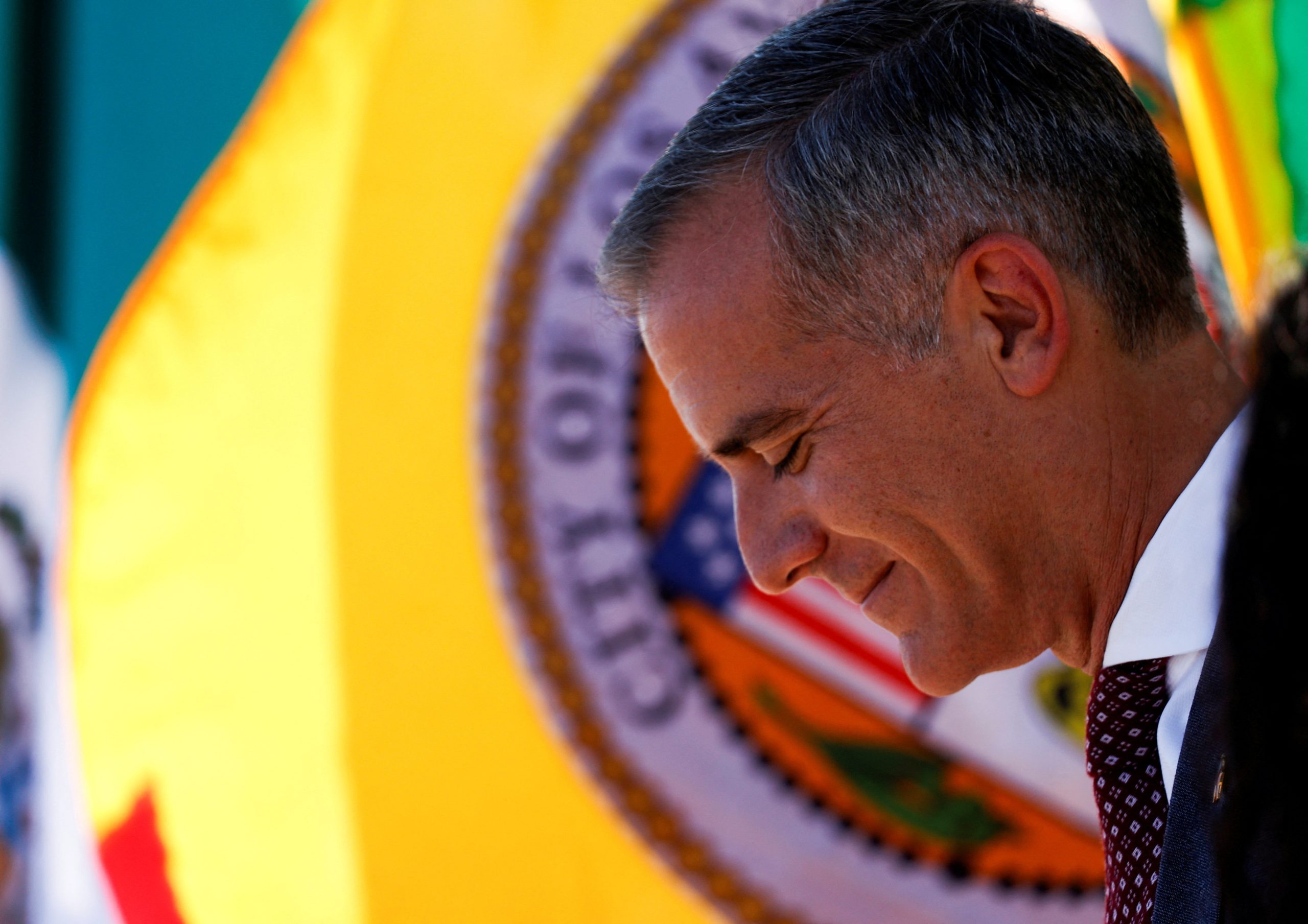
Matt Bush, FISM News
[elfsight_social_share_buttons id=”1″]
Former Los Angeles mayor Eric Garcetti was nominated to be the next U.S. ambassador to India in July 2021, 614 days later, he was confirmed by the Senate in a 52-42 vote to be the first ambassador to India since Biden took office.
Garcetti faced pushback against his nomination from Republicans and Democrats alike after an investigation into his former aide for allegations of sexual misconduct. His aide, Rick Jacobs, was accused by multiple men of sexual misconduct. Jacobs served both as Garcetti’s deputy chief of staff in Los Angeles and as a top political advisor to the mayor.
According to a report from Sen. Chuck Grassley (R-Iowa) after a months-long probe into the allegations, “the mayor ‘likely knew or should have known’ about the aide’s alleged sexual misconduct during the years they worked together in City Hall.”
With Garcetti’s nomination held up due to the scandal, Biden left the ambassador position in India open for more than two years, the longest stretch in the history of U.S.-Indian relations.
With an estimated population of more than 1.4 billion, India is by far the most populous democracy in the world, and according to the New York Times, it is also the fifth largest economy. India and China share a border that is more than 2,000 miles long and the country is viewed by America as a key ally in Asia.
“This is a really important relationship, getting more important, and they deserve a confirmed ambassador. They do,” Sen. Tim Kaine (D-Va.) said. “If you don’t confirm an ambassador, the nation kind of receives the message, ‘I guess this must not be that important.’ And we don’t want to send that message to any nation, but especially not India.”
There was even controversy surrounding the final vote yesterday with at least two previous supporters of Garcetti, Sen. Mazie Hirono (D-Hawaii) and Sen. Mike Rounds (R-S.D.), citing new evidence being presented to them that made them change their vote. Neither senator would divulge the nature of the information they received.
COMPROMISING REPUBLICANS
In the end, the post was so important that a group of Republicans voted yes including Susan Collins (Maine), Lindsey Graham (S.C.), Steve Daines (Mont.), Bill Hagerty of (Tenn.), Roger Marshall (Kan.), Bill Cassidy (La.), and Todd Young (Ind.).
Todd Young voiced what other lawmakers were probably thinking when he said, “It’s a national security imperative to immediately have an ambassador in place in India. We can’t afford to wait any longer.”
While it is believed that many voted to confirm Garcetti because of the importance of the position, Naomi Seligman, one of Garcetti’s former aides and the leader of the case against him, disagreed. She, along with others, worked tirelessly to point out testimony and used their own experience to show that Garcetti knew of the sexual misconduct and that he “oversaw an office culture that silenced victims.”
“Yes, we need an ambassador to India,” Seligman said after the vote. “But having the right person is more important than having a person right now. We all knew who Eric Garcetti is. This vote didn’t change that.”
Grassley summed up what seems to be a double standard well when he said, “On the one hand, the Biden administration says it supports victims. Yet, on the other hand, the Biden administration supports a nominee who enables misconduct that creates more victims.”
Garcetti was one of Biden’s earliest supporters and, according to the AP, became a part of his inner circle after he was elected.
